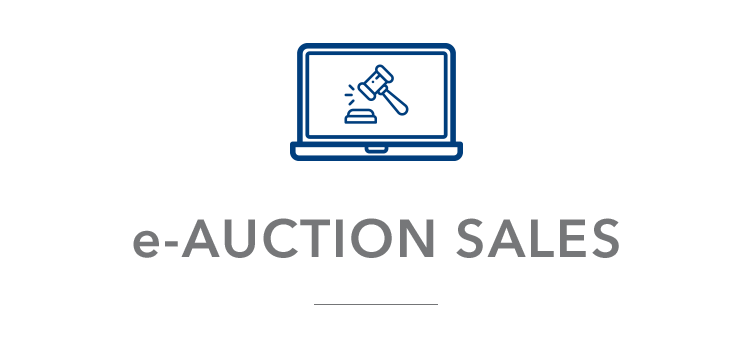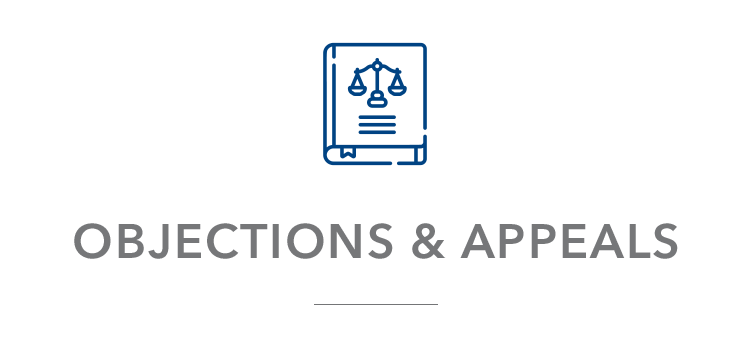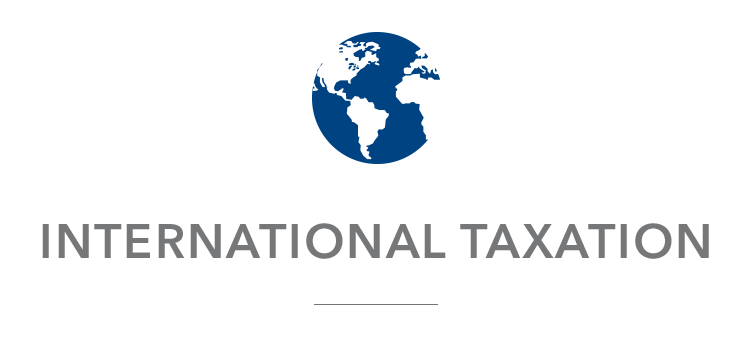Corporate Taxation
-
Persons subject to Corporate Income Tax
Companies, Trusts, Trustees of Unit Trust Schemes, Collective Investment Schemes, Foundations and Non-resident Sociétés (Partnerships) are all subject to income tax.
-
-
Companies engaged in export of goods : 3% (w.e.f 01 July 2017)
-
Others : 15%
"Export of goods" includes international buying and selling of goods by an entity in its own name, whereby the shipment of such goods is made directly by the shipper, in the original exporting country, without the goods being physically landed in Mauritius.
-
-
Subject to conditions set out as per lists A and B below, a company can avail itself of a partial exemption of 80% or 95% on certain type of income / activities.
-
The list of income / activities on which a partial exemption is available are:
-
Foreign dividend derived by a company
-
Interest derived by a company other than bank, non-bank deposit taking institution, money changer, foreign exchange dealer, insurance company, leasing company, and company providing factoring, hire purchase facilities, or credit sales facilities
-
Interest derived by a person from money lent through a Peer-to-Peer Lending platform
-
Profit attributable to Foreign PE
-
Income, other than interest, derived by Collective Investment Scheme or a Closed End Fund
-
Income derived by CIS manager, CIS administrator, investment adviser, investment dealer or asset manager licensed by FSC
-
Income derived by a company engaged in the leasing of ships,/aircrafts/ locomotives and trains, including rail leasing
-
Reinsurance/reinsurance brokering activities
-
Leasing & provision of international fibre capacity
-
Sale, financing, arrangement, asset management of aircraft and its spare parts and aviation advisory services related thereto
-
Income derived by a company holder of a Payment Intermediary Services (PIS) licence issued by the FSC
-
Income derived by a company holding a Robotic and Artificial Intelligence Enabled Advisory Services licence issued by the FSC
-
-
Partial exemption is available to a company subject to the following conditions:
-
It must carry out its core income generating activities in Mauritius;
-
It must employ directly or indirectly, an adequate number of suitably qualified persons to conduct its core income generating activities; and
-
It must incur a minimum expenditure proportionate to its level of activities.
-
-
-
Calculation of Chargeable Income / (loss)
The chargeable income / (loss) of a body of persons subject to income tax is calculated as follows:
Chargeable Income/(loss) = Gross Income - Allowable Deductions
Gross income refers to all income derived by the company other than exempt income.
Allowable deductions are expenditure, losses or allowances which are deductible under the Income Tax Act.
-
Losses of companies
Where a company has incurred a loss in an income year, it may deduct that loss in computing its net income for that income year.
Carry forward of losses
Where the amount of loss cannot be fully relieved in the income year in which it arose, the company may carry forward the unrelieved amount of the loss and set it off against its net income derived in the following five income years provided that there is no change of more than 50% of its shareholding at the end of each of those income years.
Time limit of five years
The time limit to carry forward the losses in the following five income years does not apply for the amount of loss attributable to annual allowance claimed in respect of capital expenditure incurred on or after 01 July 2006 or where the loss is attributable to expenditure incurred on deep ocean water air conditioning, water desalination plant or research and development.
Transfer of loss on takeover or merger
Where there is a change in shareholding of a company by way of takeover or merger, any unrelieved loss of the acquiree may be transferred to the acquirer in the income year in which the takeover or merger takes place under the following circumstances:
-
A company takes over another company engaged in manufacturing activities;
-
Two or more companies engaged in manufacturing activities merge into one company;
-
A company takes over, or acquires the whole or part of the undertaking of another company and the Minister has deemed such a take-over or transfer of undertaking to be in the public interest;
-
A company facing financial difficulties which is taken over by another shareholder.
The above transfer of losses on takeover or merger should be on such conditions relating to safeguard of employment or on such other terms and conditions as may be approved by the Minister.
Note that any unrelieved loss transferred shall be deemed to be incurred by the acquirer in the income year in which the loss is transferred and shall be available for set-off against the net income of the acquirer.
-
-
When a company is submitting its return of income and is in doubt regarding the interpretation of the law or treatment in respect of any matter to be included in its return of income, it may draw the attention of the Director General by specifying the doubt in its return.
Where such doubt has been specified, the company will be treated as having acted in good faith and no penalty on late payment would be imposed in respect of any additional tax resulting from the adjustment relating to the doubt.
However, when such doubt has not been specified, any additional tax from the adjustment relating to the doubt will attract penalty on late payment at the rate of 5%, except for companies having an annual turnover not exceeding 10million rupees where the penalty would be at the rate of 2%,
-
Submission of return of income
A company whether or not it is a taxpayer shall submit, not later than six months from the end of the month in which its accounting period ends, a return declaring all its income derived by it during the preceding year and at the same time pay any tax payable thereon.
Amended return
An amended return shall not be submitted after three years from the end of the year of assessment to which the return relates except where it is submitted in respect of undeclared or underdeclared income.
The amended return should be submitted electronically in an approved form, giving reasons for each amendment made to the previous return.
Any additional tax as per the amended return should be paid forthwith, together with the appropriate penalties and interest.
-
Due dates for submission of Annual Return & APS Statement and Payment of Tax
Every company, is required to file its annual return not later than six months from the end of the month in which its accounting year ends.However, where a company's accounting year ends on 30 June or 31 December, the due date for submission of return and paymentof tax is 2 days, excluding Saturdays and public holidays, before the end of December and June respectively.
Besides the annual return, companies are also required to file, under the Advance Payment System(APS), quarterly APS statements and to pay tax in accordance thereof. However, APS does not apply to a company with a turnover less than Rs 10 million per annum.
All companies deriving gross income and exempt income have the legal obligation to file annual returns and pay tax electronically. Failure to file electronic returns carries a penalty of 20% of the tax payable (maximum Rs 100 000) or Rs 5000 where no tax liability is declared in the return.
Companies may file return / statements and pay tax electronically to MRA using the Mauritius Network Services (MNS) system.
To file returns on the website of MRA, companies will require a User ID (TAN) and a password. Request for password may be sent via email on This email address is being protected from spambots. You need JavaScript enabled to view it..
To file returns through the MNS, companies will have to seek approval from this office. The form should be duly filled in and sent to the MRA.
Alternatively, companies may request an eFiling Service Centre to do the electronic filing on their behalf. A list of approved eFiling Service Centre is also available on MRA website. Companies filing their returns in Mauritian rupees may use the efiling facility available on the MRA website.
-
Penalty for late submission of return
A penalty of Rs 2,000 per month or part of the month is applicable on the late submission of a return subject to a maximum limit as follows:
- Rs 20,000 for a Global Business Company and a company with an annual turnover exceeding Rs 10 miilion;
- Rs 5000 for a company having an annual turnover less than Rs 10 miilion (excluding Global Business Companies).
Late submission of return
A penalty of Rs 2,000 per month or part of the month up to a maximum of Rs 5,000 (Applicable to companies having annual turnover less than Rs 10 miilion, excluding Global Business Companies).
Late payment of tax
A penalty of 5% of the amount of tax (Applicable to companies having turnover not exceeding Rs 10 million and Global Business Companies).
A penalty of 2% of the amount of tax (Applicable to companies having turnover not exceeding Rs 10 million, excluding Global Business Companies).
Interest on unpaid tax
Interest of 0.5% per month or part of the month during which the tax remains unpaid.
Penalty for Loss overclaimed
A company, which has claimed a loss in excess of the actual loss incurred or brought forward, would be liable to a penalty of up to 5% of the loss overclaimed. The penalty of 5% shall be offset against the amount of loss to be carried forward.
Penalty on Income Tax refund overclaimed
A company, which has overclaimed a refund of the income tax would be liable to a penalty of up to 25% on the amount of the excess refund overclaimed.

Overview of Taxes
The taxes administered by MRA are all on a self-assessment system. Under that system, persons liable to pay the relevant tax or duty have to submit declarations at the end of specified periods and pay the tax, if any in accordance with the declarations. Where the Director-General is not satisfied with the declaration or has reason to believe that a person liable to tax has not submitted a declaration, the cases are selected for audit or investigation and appropriate action are taken in accordance with the relevant legislation.
Income Tax
-
Legislation
Income Tax is governed by the Income Tax Act 1995 and the Income Tax Regulations 1996 .
-
Who is liable to Income Tax in Mauritius?
A person resident in Mauritius is liable to tax on the worldwide income derived by him.
A non-resident is liable to tax on income derived from sources in Mauritius
-
What types of income are chargeable to tax?
Individuals
Individual Taxation
Emoluments (PAYE)
Pay As You Earn (PAYE) System concerns salary earners, and covers salaries, wages, pensions and other income related to employment.
Business Income (CPS)
Current Payment System (CPS) concerns self-employed persons with income derived from trade, business, profession and rent. Is also included share of income from société and succession deriving income from trade, business and rent.
Other Income (Income NOT falling under PAYE and CPS)
Income such as interest, royalty, foreign dividends, charges, annuity.
Companies (including Trusts and Unit Trust Schemes)
Corporate Taxation :
Income such as business profits, interest, royalty, foreign dividends and rent.
-
Exempt bodies of persons
Any bodies of persons specified in Part 1 of the Second Schedule is exempt from Income Tax
-
Exempt income
Details of exempt income are as indicated below:
Types of income
Exempt income listed in
Emoluments
Sub-Part A to the Second Schedule to the Income Tax Act
Dividends, Interest and Royalty
Sub-Part B to the Second Schedule to the Income Tax Act
Miscelleneous
Sub-Part C to the Second Schedule to the Income Tax Act
-
Business income
The term "business" is defined as including trade, manufacture, profession and undertaking.
"Trade" means any trade, adventure or concern in the nature of a trade.
By virtue of Section 10(3) of the Income Tax Act, gross income derived from a business shall include:
-
any sum or benefit, in money or money's worth, derived from the carrying on or carrying out of any undertaking or scheme entered into or devised for the purpose of making a profit, irrespective of the time at which the undertaking or scheme was entered into or devised;
-
any sum or benefit derived from the extraction, removal or sale of any mineral, tree or wood;
-
any sum or benefit, in money or money's worth, derived from the sale of any immovable property or interest in immovable property, where the property was acquired in the course of a business the main purpose of which is the acquisition and sale of immovable property;
-
any increase in the value of trading stock on hand at the time of transfer by sale or otherwise of a business or on the reconstruction of a company; and
-
any subsidy derived in the carrying on of a business."
-
-
General rules for deduction of expenses
Any expenditure or loss to the extent to which it is wholly and exclusively incurred in the production of gross income of the business is deductible from the gross income.
-
Unauthorised deductions
The following deductions are not allowable:
-
any investment, expenditure or loss to the extent to which it is capital or of a capital nature;
-
any expenditure or loss to the extent to which it is incurred in the production of income which is exempt income;
-
any reserve or provision of any kind;
-
any expenditure or loss recoverable under a contract of insurance or of indemnity;
-
any expenditure incurred in providing business entertainment or any gift;
-
income tax or foreign tax;
-
any expenditure or loss to the extent to which it is of a private or domestic nature.
-
-
Annual Allowances
The provisions for annual allowances are found in Section 24 of the Income Tax Act.
The rates of annual allowance for capital expenditure qualifying for annual allowances are found in the Fourth Schedule to Income Tax Regulations 1996.
-
Losses
Losses may be set off against net income other than emoluments subject to the following:
Losses incurred in an income year may be carried forward to be set-off against net income of the following 5 income years only.
The time limit of 5 years is not applicable for the carry forward of any amount of loss that is attributable to annual allowance claimed in respect of capital expenditure incurred on or after 1 July 2006.
-
Presumptive Tax System
A small enterprise may, on or before the due date for the filing of its return of income, elect to pay a presumptive tax at the rate of 1% of its gross income. Where a small enterprise has made an election to pay presumptive tax, it shall not be entitled to claim any Reliefs, Deductions & Allowances.
Small Enterprise means a person:
-
Who is engaged in the following activities:
-
Agriculture, forestry and fishing
-
Manufacturing excluding restaurants
-
Wholesale of foods
-
Retail of goods, including sale of food to be consumed off-premises.
-
-
Whose gross income in an income year does not exceed Rs. 10 million rupees; and
-
Whose gross income from other sources, other than those specified above, does not exceed Rs. 400,000.
-
Value Added Tax (VAT)
-
Legislation
The law relating to VAT is contained in:
-
the Value Added Tax Act 1998 and
as subsequently amended.
-
-
What is Value Added Tax?
Value Added Tax (VAT) is a tax on goods and services. It is chargeable on all taxable supplies of goods and services made in Mauritius by a taxable person in the course or furtherance of any business carried on by him. VAT is also payable on the importation of goods into Mauritius, irrespective of whether the importer is a taxable person or not. The rate of VAT is 15% on the value of taxable supplies other than zero-rated supplies.






















